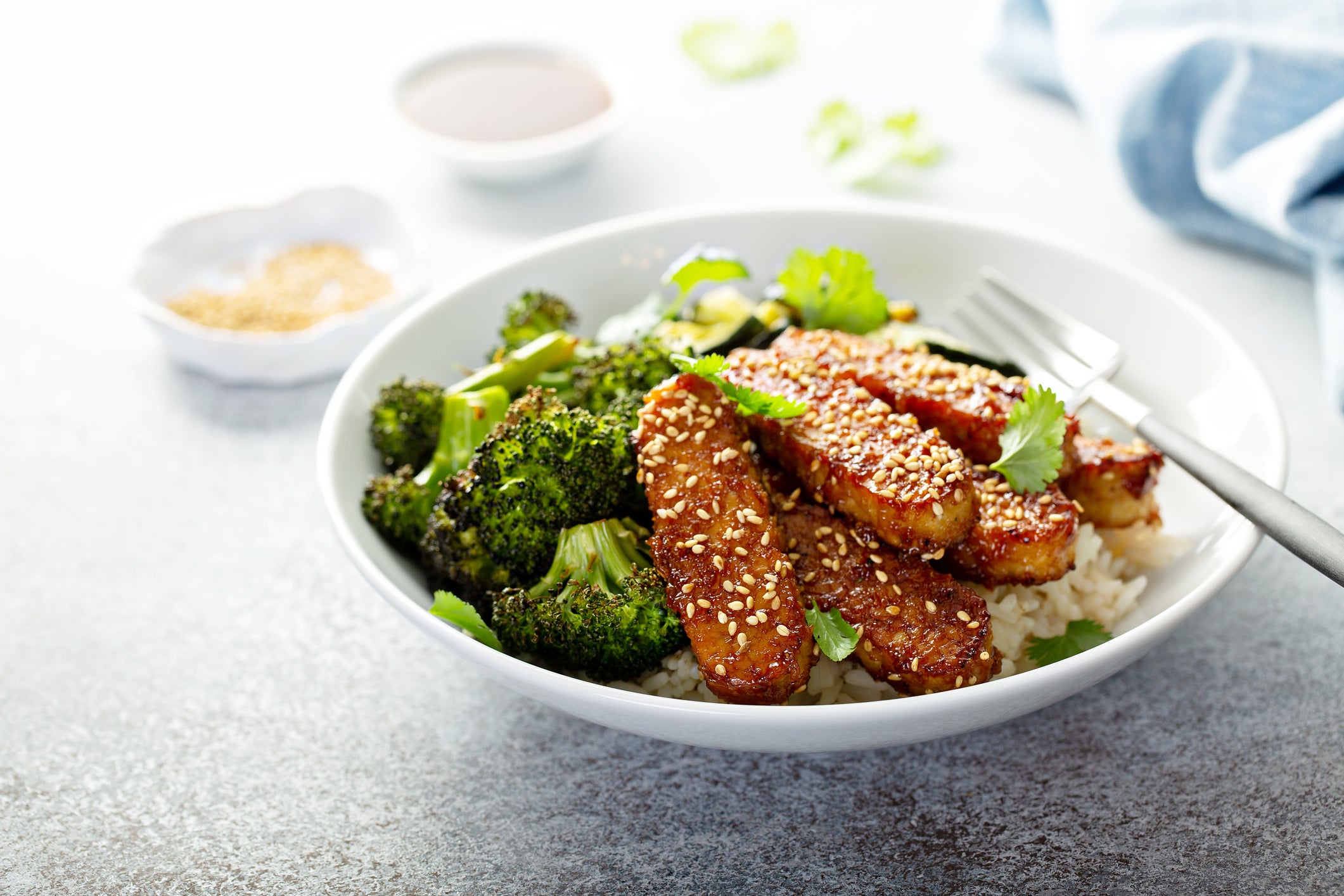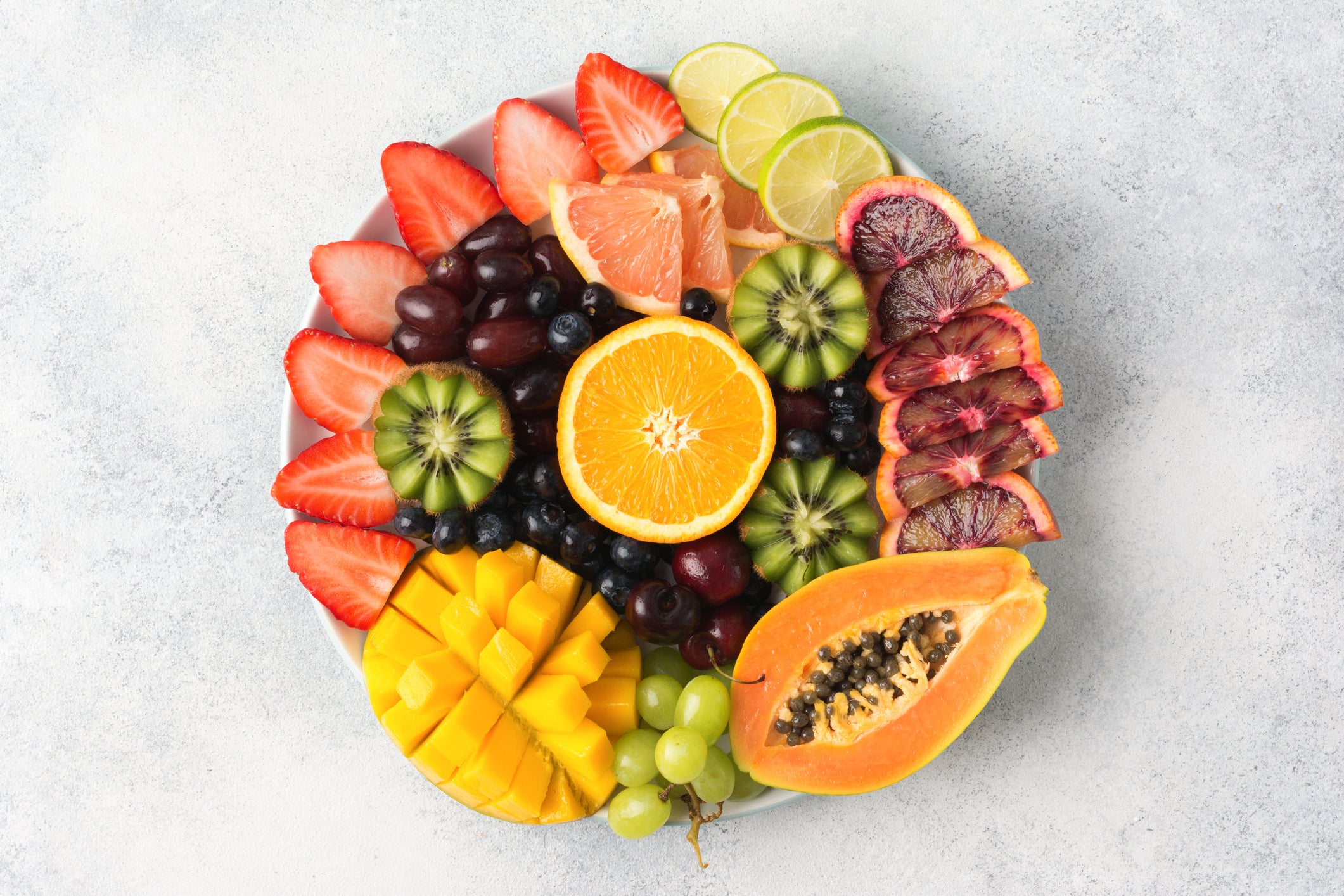
The science is clear that a plant-based diet can meet nutritional requirements at all stages of life, from birth to old age.
The consumption of animal products is not necessary for human health and in some cases can cause harm. Diets high in red meat and saturated fat are in fact associated with an increased risk of type 2 diabetes, cardiovascular disease and cancer – and processed meat such as bacon is a Class 1 carcinogen according to the WHO.
Meanwhile, dairy has been linked to an increased risk of childhood disorders such as asthma and eczema and may worsen symptoms of Polycystic Ovarian Syndrome (PCOS) such as cystic acne. For men, dairy consumption also increases the risk of prostate cancer.
Furthermore, 70 per cent of people around the world have lactose malabsorption, many of whom are people of colour and dairy farming causes environmental destruction. Avoiding meat and dairy products is the single biggest way to reduce your environmental impact on the planet according to leading scientists at Oxford University – far greater than cutting down on flights, giving up your car or recycling.
A plant-based diet, rich in fruit, vegetables, whole grains, legumes, nuts and seeds, is one of the healthiest choices you can make, especially as unhealthy diets are now the leading cause of chronic illness around the world. National and international guidelines recommend plant-based diets for prevention of cardiovascular disease, cancer and the management of type 2 diabetes. These foods also honour compassion for animals, and the future of our planet.
There is no one right way or wrong way to make the transition to a plant-based diet. One person might watch a slaughterhouse video and feel compelled to go vegan overnight. Some might transition more gradually.
The latter may allow the gut microbiome to adapt to the increase in fibre in a plant-based diet. I recommend crowding out animal products and adding in plant-based foods that make you feel good and taste delicious. Swap meat, dairy, fish and eggs for protein, iron and zinc-rich foods such as lentils, tofu, tempeh and beans. Soya contains a good amount of all nine essential amino acids and lowers the risk of prostate and breast cancer, especially when started in childhood.
Make sure you are not being too restrictive either and experiment with some of the new vegan meat and cheese alternatives on offer. However, where possible aim to base most of your meals around whole plant foods which tend to be more beneficial for health, the environment and your wallet.

What should I eat?
Whole grains: Opt for whole grains such as brown rice, oats, wholewheat pasta, amaranth and quinoa as they are higher in fibre, protein and micronutrients than refined versions.
Legumes: Beans, lentils and peas are some of the most sustainable protein sources on the planet. Choose canned or jarred versions for convenience if you have the extra space. Try chickpeas, black beans, soya beans, lentils, tofu and tempeh.
Fruit and vegetables: These are bursting with micronutrients and should be included ideally in every meal. Have a mix of both fresh and frozen to hand for tasty, colourful meals.
Nuts and seeds: Store these in the fridge or freezer to extend shelf life and prevent rancidity. Walnuts and ground flaxseeds are rich in omega-3 fats and pumpkin seeds are a great source of zinc.
Herbs and spices: These are packed with anti-oxidants and can transform plant-based meals with flavour without the use of lots of added salt, sugar and oil.
Other staples might include fortified plant milks, extra virgin olive oil, vinegars and condiments such as nutritional yeast and miso.

How to obtain enough protein and essential nutrients on a vegan diet
Protein is not generally an issue if you are eating a variety of plant-based foods especially legumes, and this is especially important for young children, older adults, during pregnancy and for athletes. It’s important to feel satiated and eat enough – whole plant foods are generally less calorie dense and bulkier than animal products due to their fibre content. Fill up on fruits, vegetables, whole grains, beans, tofu, lentils and nuts and seeds.
I suggest including a daily serving of omega-3 rich seeds such as ground flaxseed, chia seeds, walnuts and hemp seeds (eg two tablespoons of ground flaxseed on your porridge). Ensure you are supplementing with B12 and ensure you are getting a good source of iodine, a supplement is most reliable as amounts in seaweed can be variable.
There is nothing new about plant-based diets, they have existed for centuries. However, many people are waking up to the horrific realities of the climate crisis and animal agriculture industries and the urgent need to shift to a plant-based food system.
Animal agriculture and the food we eat is inextricably linked to zoonotic diseases, increasing the risk of another pandemic such as Covid-19. Three in four emerging infectious diseases now come from animals, from transmission from the wildlife trade and factory farms. Unhealthy diets are one of the leading causes of ill health and reduce life expectancy as well as quality of life.
We know that a healthy plant-based diet reduces the risk of coronary heart disease by 25 per cent, certain cancers by around 15 per cent and type 2 diabetes by at least 50 per cent as well as improving our energy levels. When it comes to plant-based diets, there is nothing to lose and everything to gain and the future looks exciting.
Rohini Bajekal is a nutritionist at Plant Based Health Professionals UK







